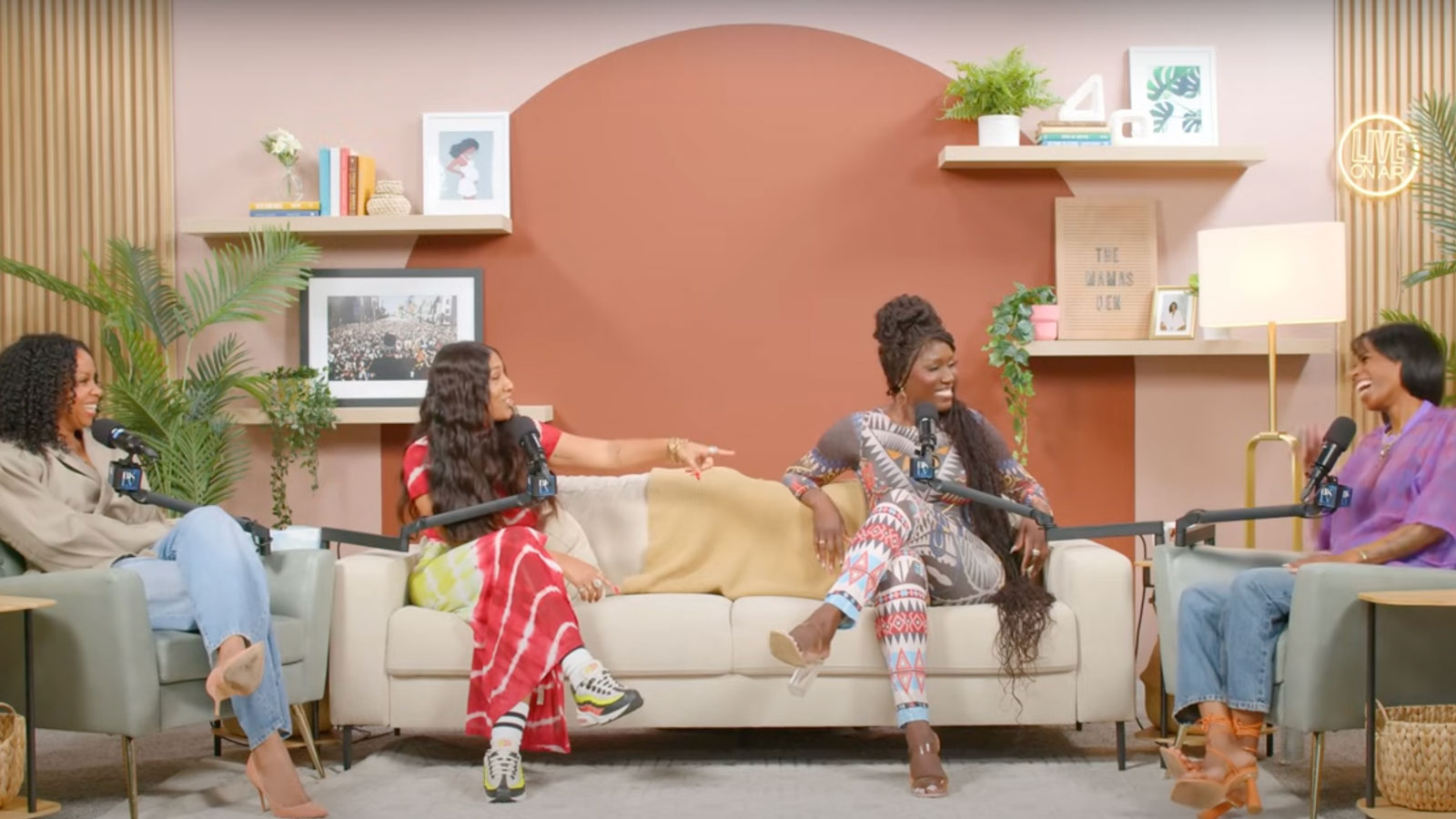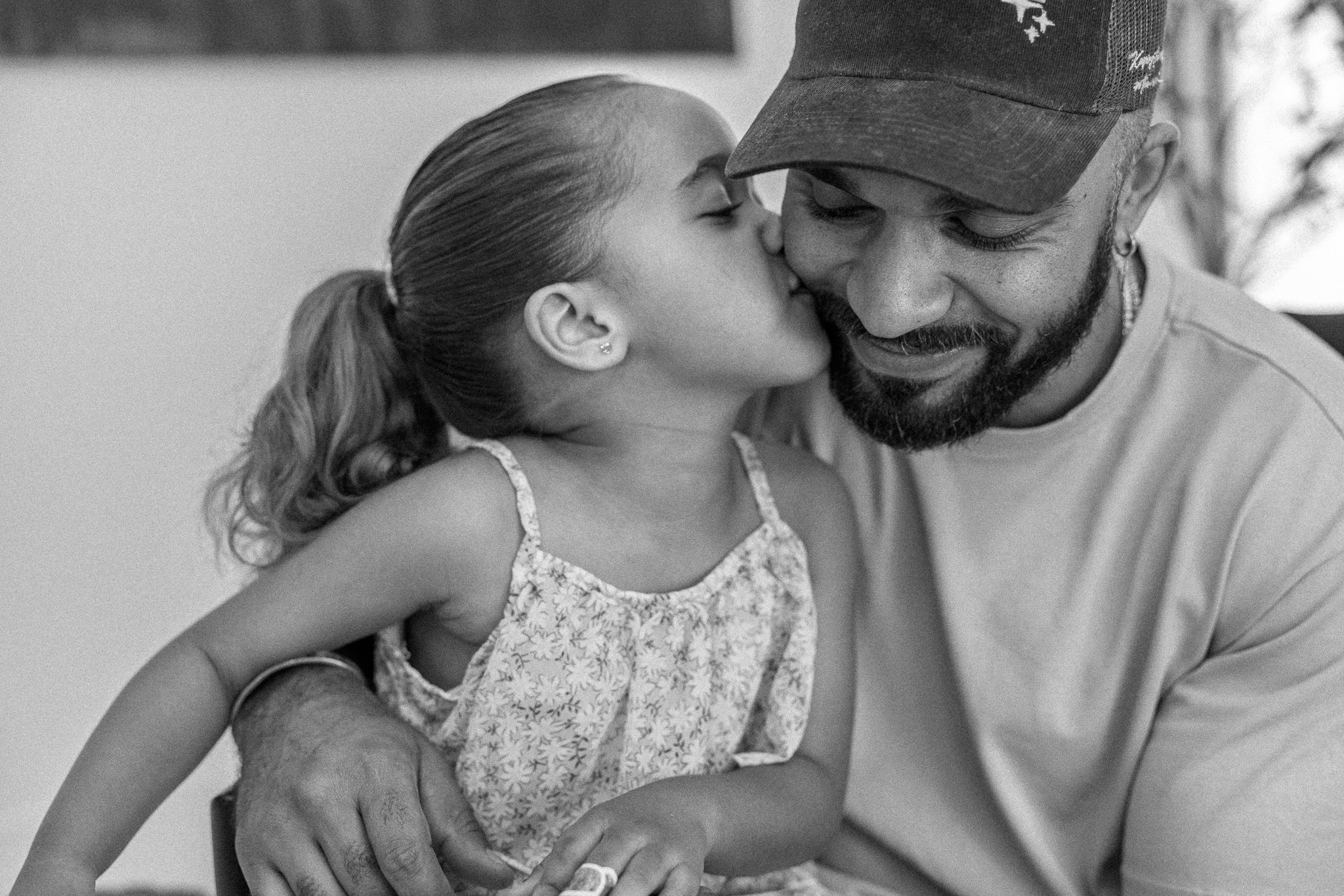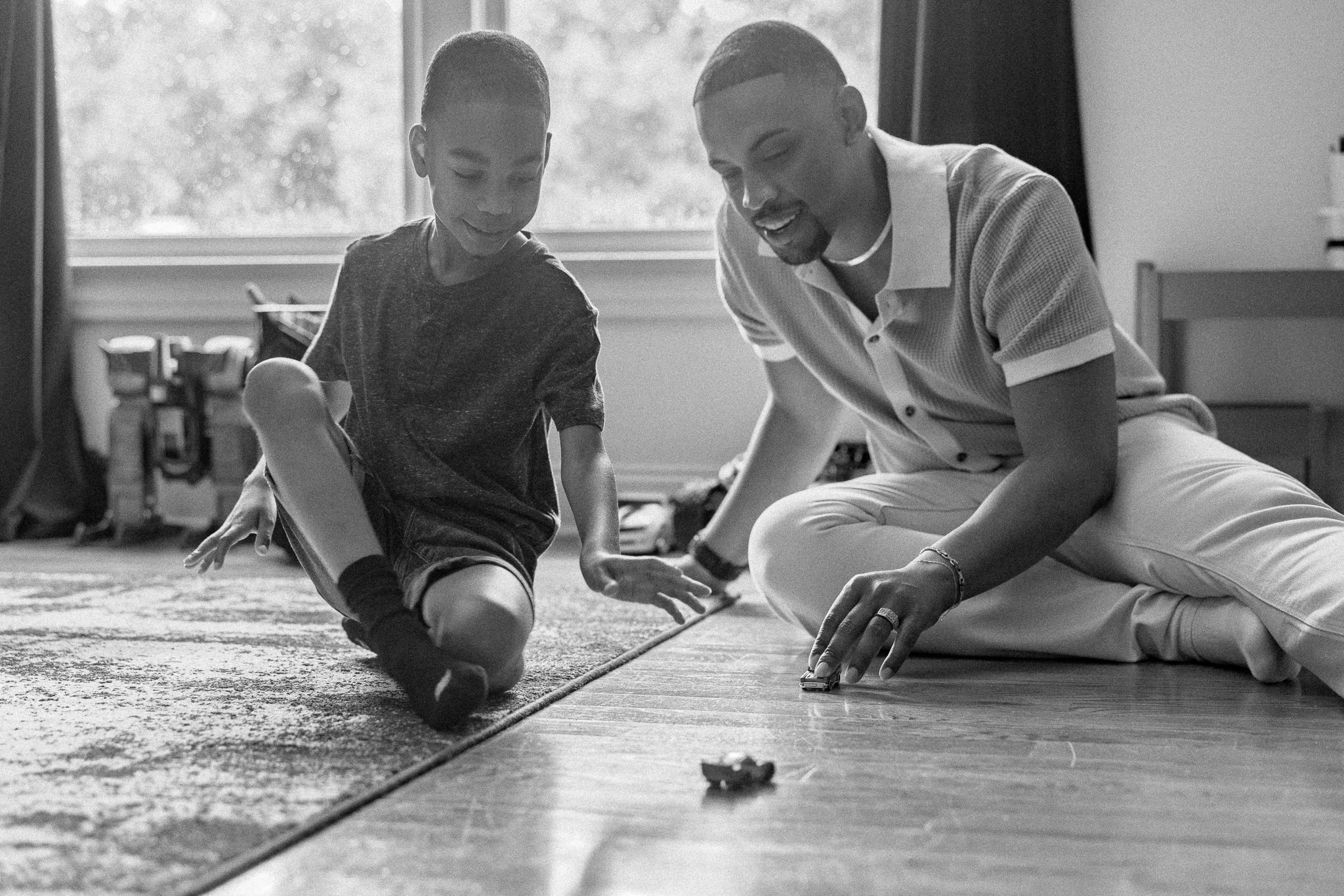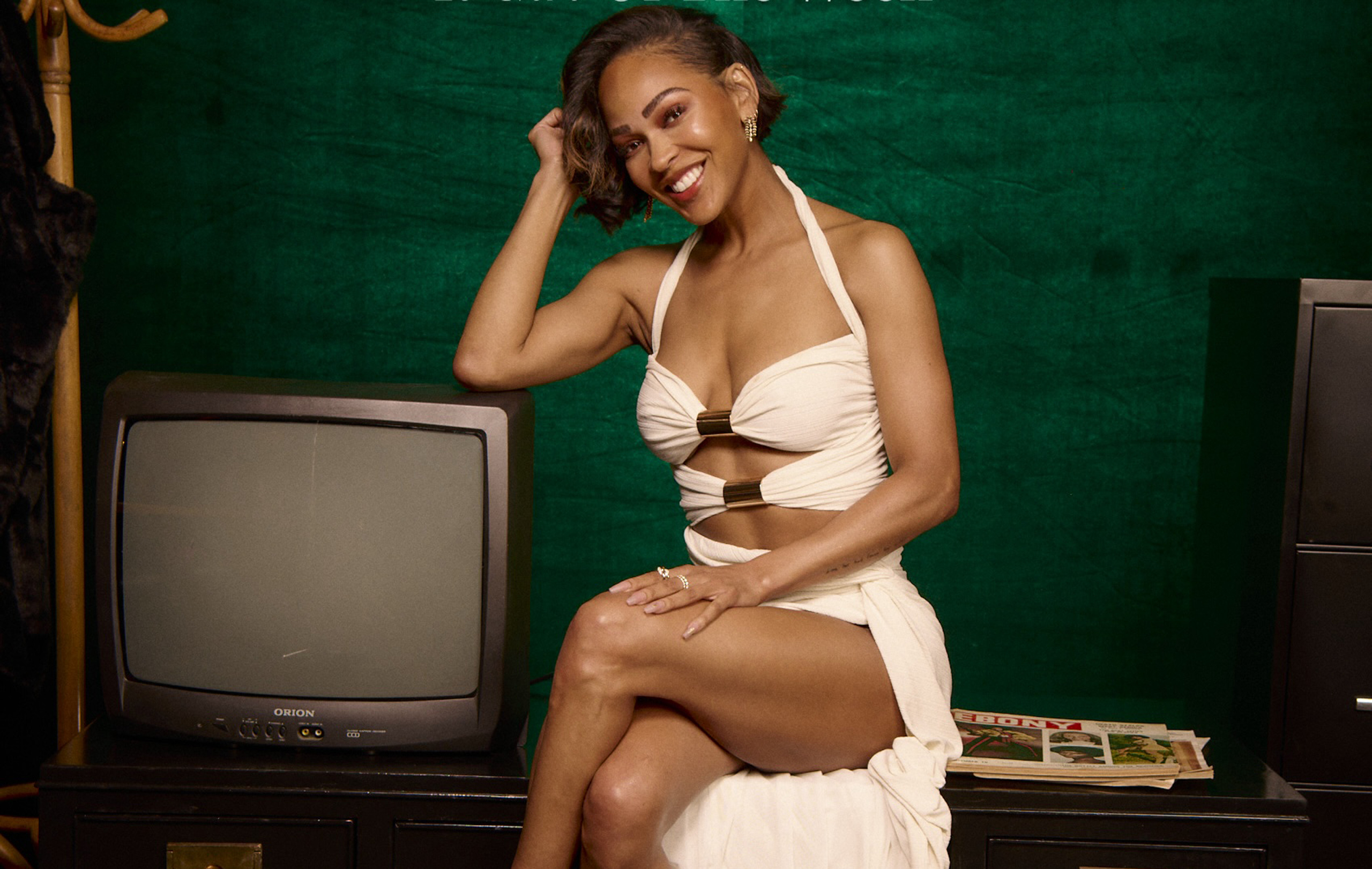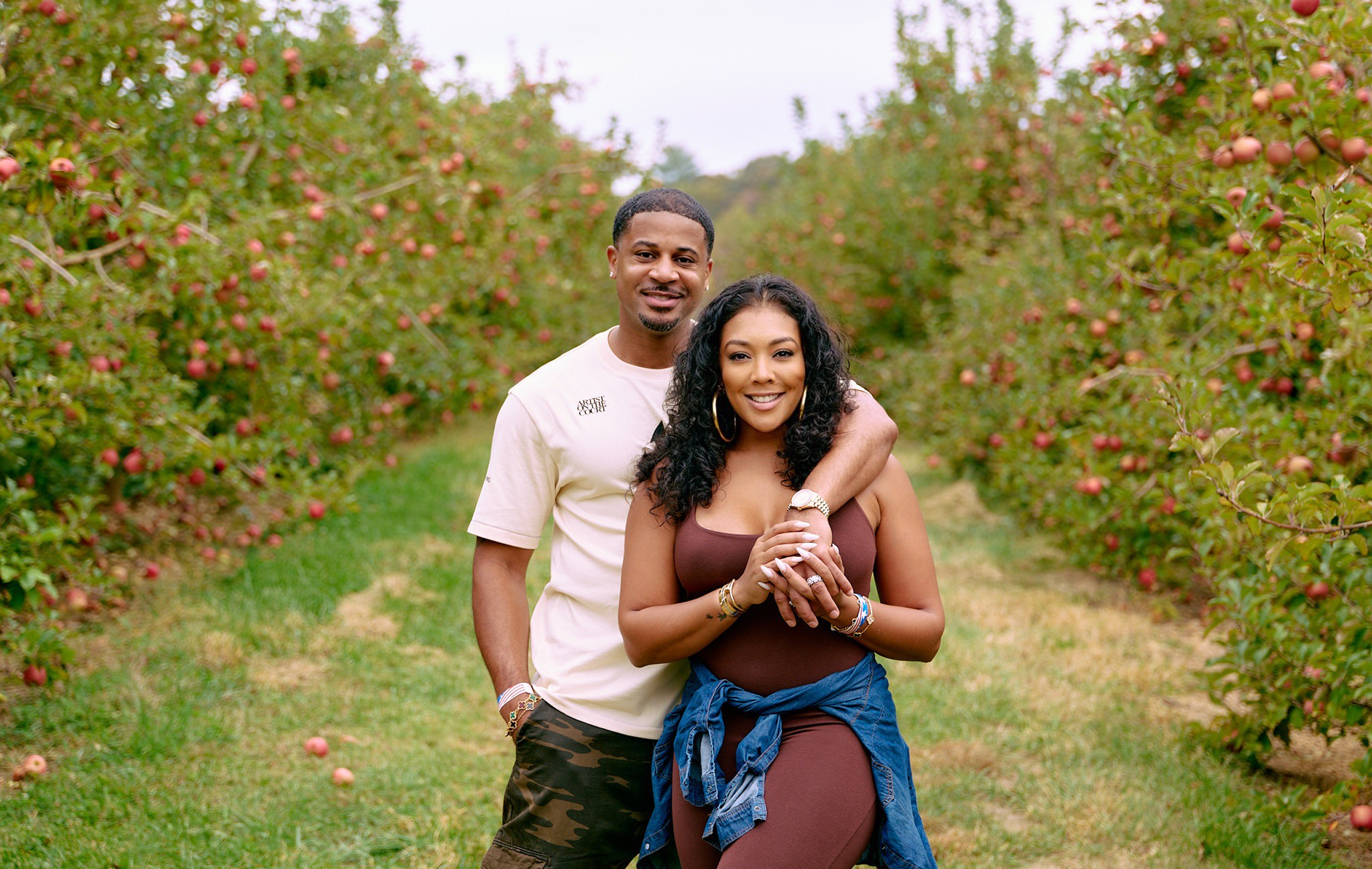
Shelah Marie at the 2023 Black Love Summit (Courtesy of @mo_storyteller/Instagram)
Shelah Marie at the 2023 Black Love Summit (Courtesy of @mo_storyteller/Instagram)

Shelah Marie at the 2023 Black Love Summit (Courtesy of @mo_storyteller/Instagram)
Wellness founder Shelah Marie might be new to the Black Love Family, but she’s made a lasting impression and reminded us all of the importance of healing while loving and building together. Marie and her husband, rapper Ace Hood, are the hosts of Season 5 of “Couch Conversations,” available on the Black Love+ app and they both were speakers at Black Love Summit 2023! Following sharing her lessons in life, love, and wellness during Summit in conversation with Tai Beauchamp, Shelah chatted with me about the importance of checking yourself on the journey of healing, her brand Curvy Curly Conscious, what she took away from “Couch Conversations,” and what therapy has been like with Ace.
Yasmine Jameelah: Season 5 of “Couch Conversations” just came to a close. What was your experience like, hosting “Couch Conversations”? What did you take away from it?
Shelah Marie: Well, I’ve done TV before, and I feel like “Couch Conversations” was the first time, especially for me and my husband, where I felt like we were able to safely be ourselves. It was okay to be vulnerable because we knew that Codie and Tommy had our best and the collective’s best interests in mind. It wasn’t a situation where we felt exploited; it kind of felt like we could be free. Not only that, the conversation style is, to me, where I thrive because I don’t necessarily just like sitting up and talking to people. I like learning from people. And all the couples we got to meet, I feel like I was there just like, am I really hosting? Because I feel like I’m learning from every couple and that was so enlightening on set and when we left, we were so full.
And then after, when we saw the episodes, we were so happy because when you’re filming something you don’t always know how it’s going to be edited, there’s always like that little nervousness before it comes out. Like, what did I say? But when it came out, we were like, no, this is great. I just thought all the conversations were so productive and necessary. Everybody has been commenting with encouragement, so shout out to y’all because everybody has been saying, like, where are these conversations? Nobody else is having them. Shout out to Black Love for providing a platform for that.
Related Articles:
Black Love Summit Reminded Me That Love is a Dynamic, Ever-Evolving Journey
Season 5 of “Couch Conversations” Returns With Hosts Ace Hood & Shelah Marie!
Tai Beauchamp is Championing Black Women to Tend to Themselves First
View this post on Instagram
YJ: Something you shared during “Couch Conversations” resonated with me, which was that you thought healing would be you and Ace going to therapy and the therapist telling Ace everything he did wrong.
SM: (Shelah laughs) Yes, because I’m an Aries, and we are never wrong.
YJ: Me too, girl, April 14th.
SM: Okay, I’m April 10th, twin. We right here vibing! So you know what? I feel like when you’re doing a lot of work on yourself and you’re healing me, I’ve been in therapy, it’s almost a little insidious because then you could sometimes get on this little high horse of like, well, I’ve evolved past that. I learned you’re still dealing with triggers. Well, I’ve managed you can get to that a little bit. And I thought going into couples therapy, that I have done the work clearly, so it’s not me, it’s him. And the therapist was like, well, sometimes, and she reminded me that my goal for going to therapy was not to find blame. My goal for going to therapy was for us to relate on a healthier level. And that was a nice reframe to why I was looking for somebody to blame just so I could distract myself from maybe any more work that I might need to do or things I need to look at, so it was a needed experience.

Shelah Marie at the 2023 Black Love Summit (Courtesy of Kai Byrd Photography)
YJ: Yes, I really enjoyed that episode, and just overall, the conversations about wellness, that episode in particular, was something that so many couples, even married couples, have written into us and said they really appreciated your feedback. What are some things that you could give advice to Black women who are trying to get their Black husbands or Black partners to consider therapy? What are any tips and suggestions that you have, given your background in wellness and just even your background and having that experience with Ace in therapy?
SM: Okay so first, I would say examine what therapy looks like and means to you because when you’re presenting therapy to someone, many times they think, oh, this is just going to be us sitting on a couch with somebody. And a lot of men feel like the therapist is automatically going to choose the woman’s side, and then this is just going to be like a triangulation thing. So I think it’s helpful to be reminded that there are so many healing modalities, literally. Like, you can do body work, you can work reiki. There’s a bunch of different things. Even if that’s too far out for a lot of people, you can start with going your religious institution as some people feel more comfortable there. For me and my husband, it was getting a therapist that was a Black male because we had seen women before, and I felt like, okay, I think that a Black man could reach him in a way that the woman just couldn’t relate to a certain degree. And that opened the door when he felt like, okay, this person is going to understand me. This person is going to relate to me and not necessarily attack me.
View this post on Instagram
YJ: I love that that approach worked. So I want to pivot to brand Curvy, Curly, Conscious, and your work in wellness. You’ve been working in wellness for quite some time with your meditation mixtapes, your book, with your work with your community. How does it feel to now be back to retreats with the support of Black women who understand that we deserve our own spaces?
SM: Let me just say nobody will support you like black women. Nobody will gas you. Nobody will stand up for you like Black women. My community is so loyal that I feel like I don’t need all the people. I just need the right people, and I have the right people. My community is extremely intelligent, intuitive, and kind, and they’re evolving with me. So I feel like they’ve evolved through the pandemic too. So it’s almost like I not only know that they needed something from me after the pandemic, I know I needed something from them because, if nothing, the pandemic taught me that community is so important and that isolation was good. I got to redefine some things for myself, but it reminded me like, we need each other, and we can do a lot of things by ourselves, but we need each other. If we’re going to do anything, if we’re going to shift the world that we want to see, if we’re going to create more kindness and gentleness and safety for Black women, we need each other.

Courtesy of Kai Byrd Photography
YJ: Absolutely. You’ve shared so much with us now and earlier today at the Black Love Summit on wellness. After we leave here today, how can we keep wellness in mind more deeply and intentionally beyond the therapist’s office?
SM: Wow, that’s a great question. I think that, first of all, you have to make sure you’re defining what wellness means to you. I think a broad definition of wellness for me could be not having to betray yourself. So if you’re in a relationship that’s constantly asking you to go against, like, your core self, not your outer self that just doesn’t want to do certain things, then you might want to redefine that. Or if you feel like you’re working at a job or you’re in a life where you feel like you’re constantly going against yourself, I think that’s the first indicator. It’s like a check engine light so you can look into that. I think that is really the metric. I would say, like, am I going against myself consistently in this situation, doing this behavior and this action or whatever? And sometimes you can stop there. You might not have the resources to take it further and solve the problem. You might not have the energy, you might not have the willpower, and that’s okay. I think we can be gentle with ourselves. We get this idea that if I see something, I got to do it, fix it right now, and that’s okay. I think having that awareness and being gentle with yourself along the process is key.
Shelah Marie is the founder of Curvy Curly Conscious and the co-host of Season 5 of Black Love’s “Couch Conversations.” Download the Black Love+ app to stream Season 5 and listen to Shelah’s wellness panel discussion as well as her discussion with the Wives Panel on YouTube.
Related Articles
Bozoma Saint John talks Black motherhood, grief, self-love, and finding joy again. Don’t miss her powerful conversation on building legacy and living boldly.
Tyler Lepley shows the beauty of Black fatherhood, blended family life with Miracle Watts, & raising his three children in this Father Noir spotlight.
Black fathers Terrell and Jarius Joseph redefines modern fatherhood through love, resilience, unapologetic visibility in this Father Noir highlight.
Featured Articles
When Elitia and Cullen Mattox found each other, they decided that they wanted their new relationship together, their union, to be healthier and different.
Celebrate their marriage and partnership with the release of the documentary “Time II: Unfinished Business”
The vision for our engagement shoot was to celebrate ourselves as a Young Power Couple with an upcoming wedding, celebrating our five year anniversary - glammed up and taking over New York.
Meagan Good and DeVon Franklin’s new relationships are a testament to healing, growth, and the belief that love can find you again when you least expect it.
Our intent is to share love so that people can see, like love really conquers everything. Topics like marriage and finance, Black relationships and parenting.
HEY CHI-TOWN, who’s hungry?! In honor of #BlackBusinessMonth, we teamed up with @eatokratheapp, a Black-owned app designed to connect you with some of the best #BlackOwnedRestaurants in YOUR city – and this week, we’re highlighting some of Chicago’s best!

